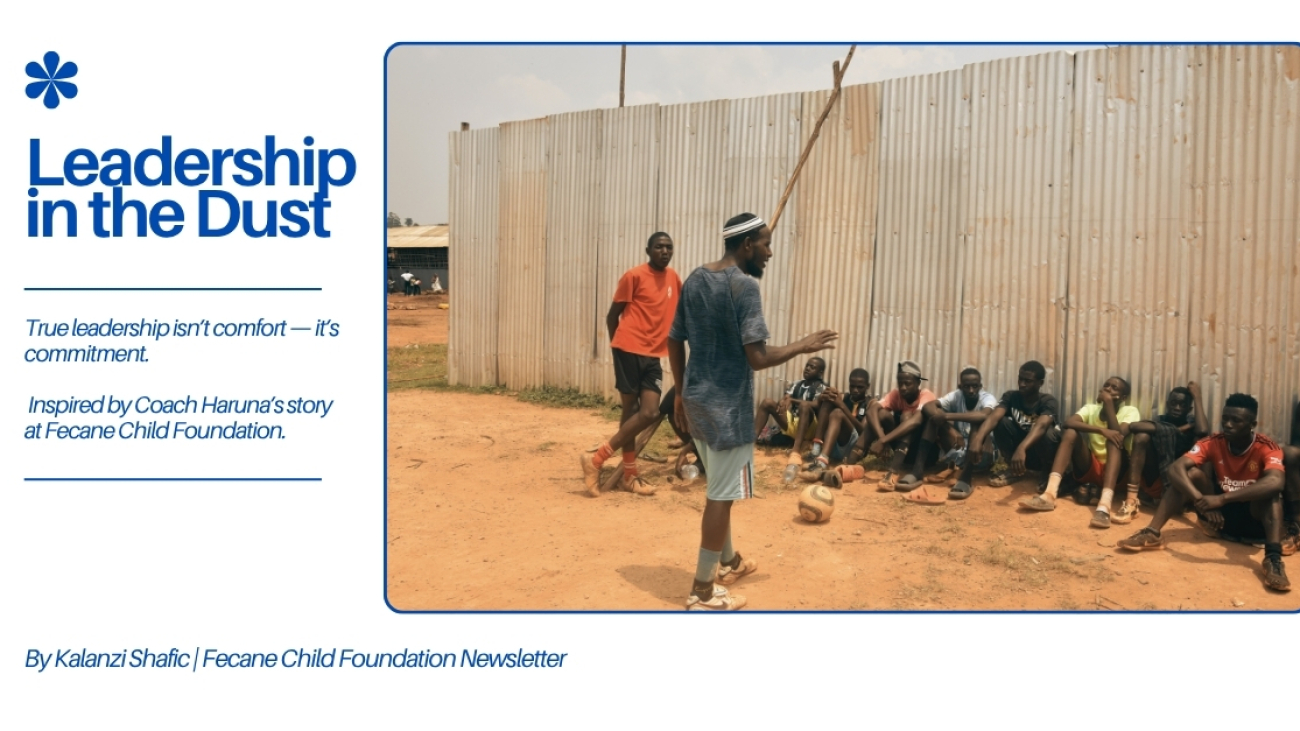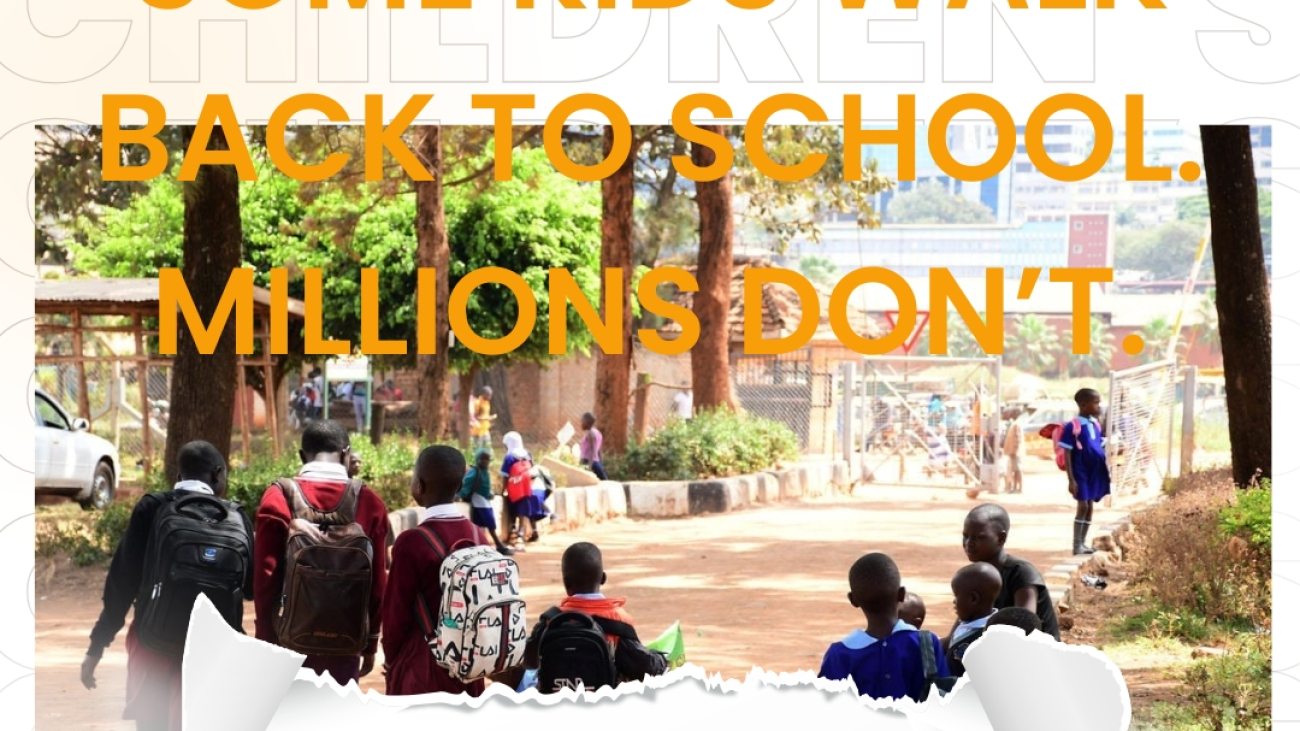🌍 Leadership Isn’t About Comfort — It’s About Commitment
When we talk about leadership, we often imagine conference rooms, strategy meetings, or polished speeches. But sometimes, the greatest lessons in leadership aren’t taught in air-conditioned offices — they’re learned on dusty football fields, under the hot Ugandan sun.
At Fecane Child Foundation, where we use football and mentorship to transform the lives of vulnerable children, I’ve had the privilege of meeting leaders whose stories rarely make headlines — but whose impact echoes quietly across generations.
One of them is Coach Haruna. And his story reshaped my entire understanding of what it means to lead.
⚽ The Man Who Stayed — Even When It Hurt
A few months ago, Coach Haruna’s health began to decline. The doctors advised rest. His friends insisted he take time off. But every morning, before the first light touched the dusty field in Kawala, Haruna was there — whistle around his neck, slow steps, steady smile.
He didn’t come because he had to. He came because the children were waiting — and he didn’t want them to lose hope.
I remember asking him one morning, “Coach, why not take a break until you’re better?” He smiled faintly and said,
“If I stay home, who will remind these kids that someone believes in them?”
That answer stayed with me. Because that’s not just passion — that’s service. That’s leadership in its purest, most selfless form.
💡 The Leadership Lesson Hidden in the Dust
Watching him on that pitch changed how I think about leadership — not just in nonprofits, but in life and business.
Leadership is often confused with visibility, authority, or control. But real leadership is presence. It’s showing up when it’s hard, when no one’s clapping, when no one will notice — but the mission depends on you.
Haruna doesn’t lead with words; he leads with consistency. He doesn’t inspire through speeches; he inspires through sacrifice.
And that’s when it hit me: Leadership isn’t comfort. It’s commitment.
Whether you’re leading a company, a team, or a community — the principle is the same: True service means putting others before yourself, especially when it’s inconvenient.
💬 The Broader Truth: Leadership at Every Level
In Uganda and across Africa, thousands of quiet leaders like Haruna hold communities together — teachers, coaches, volunteers, parents. They rarely receive recognition, but they build the foundations of tomorrow.
At Fecane Child Foundation, I see this spirit every day. When a volunteer mentors a child. When a coach shares a single pair of football boots among five players. When a mother sacrifices her meal to pay for her son’s school transport.
Leadership doesn’t require power — it requires heart. And in the dust of Kawala, leadership is being redefined by the people who have the least, yet give the most.
🌱 Reflections for Every Professional
For leaders reading this — in business, government, or social sectors — here’s what Coach Haruna’s example taught me:
- Presence is more powerful than perfection. You don’t need ideal conditions to make a difference — you just need to show up.
- Sacrifice builds credibility. People don’t follow titles; they follow those who serve.
- Purpose sustains you when comfort disappears. When the “why” is strong enough, the “how” will follow.
- Empathy is strategy. The most effective leaders are those who lead with compassion, not command.
🤝 A Call to Honor the Heroes Behind Change
Today, I’m writing not just to tell Haruna’s story — but to honor every unsung hero working in the background of progress.
If you lead a company, a CSR department, or an NGO, I invite you to look beyond metrics and budgets for a moment — and see the human stories that make impact real.
At Fecane Child Foundation, we’re working to expand our reach to more communities, train more volunteer coaches, and rebuild hope for hundreds of children through football and mentorship.
Behind every program, there’s a Haruna — someone quietly carrying the mission on their shoulders.
Let’s support them. Let’s celebrate them. Because sustainable change starts with leaders who stay — even when no one’s watching.
💚 Final Thoughts
Leadership is not a position. It’s a posture. It’s waking up every day and saying, “I will show up — not for recognition, but for transformation.”
So, to everyone out there leading in silence, serving in hardship, and building in the dust — We see you. We honor you. And you are changing the world.
📣 Join the Movement
If this story moved you — take one small action today: ✔️ Share this newsletter to inspire others about what real leadership looks like. ✔️ Connect or partner with Fecane Child Foundation to empower more community leaders like Coach Haruna. ✔️ Or simply leave a comment — telling us who your “Haruna” is in your own life.
Together, we can redefine leadership — not as power, but as purpose.
Kalanzi Shafic Founder | Fecane Child Foundation
🌍 Empowering vulnerable children and youth through football, mentorship, and community transformation.


